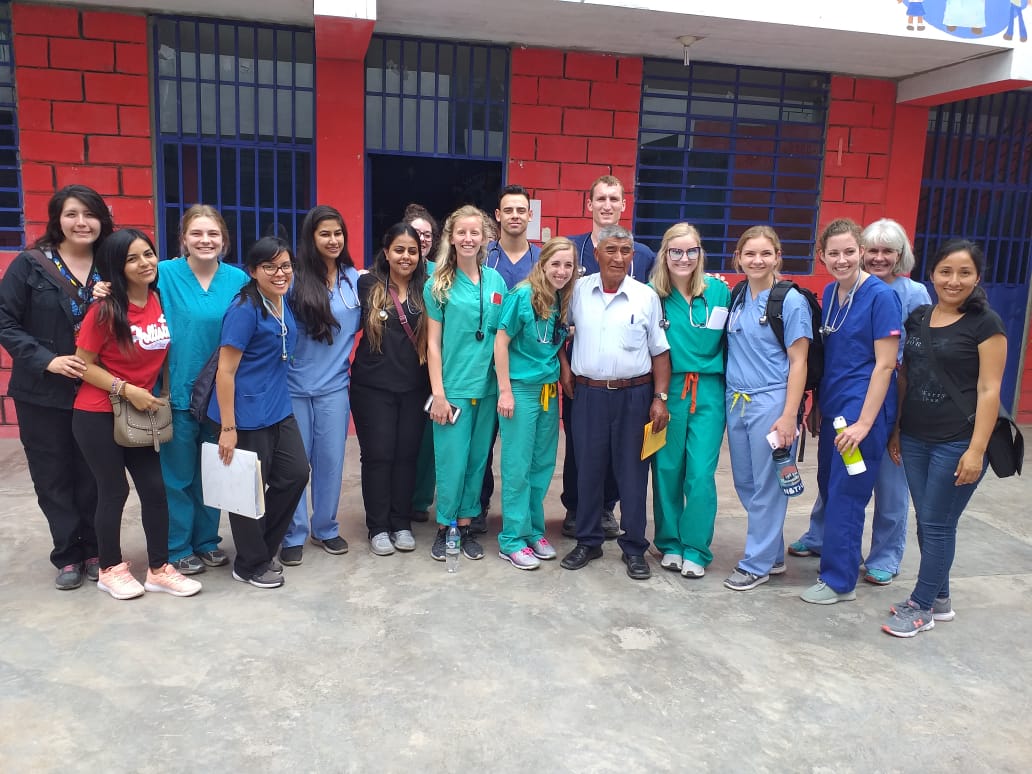One of my favourite Spanish quotes is “Ponte Las Pilas”, which literally translates to “put in your batteries” and is akin to the English saying, “put your skates on and get cracking!”. It perfectly describes the first few weeks of my time in Trujillo, Peru. There has been no rest for the wicked and I have loved every moment of it.
I am very lucky to be able to stay with a Peruvian family here in Trujillo, which not only means I get to eat delicious, authentic Peruvian food three meals a day, but it also allows for extra Spanish practice, as the family does not know any English. Thanks to this method of full immersion, my Spanish has improved 10-fold in just a few weeks. After a day of thinking, listening and speaking in Spanish, my brain is truly fatigued, however, it is incredibly satisfying.
In the morning, I go to work in the Emergency Department at Trujillo Regional Hospital. Then, after a short siesta in the afternoon, I go to the Medical Spanish Language school for Medical Spanish lessons. These classes teach me, as well as other medical students, doctors, nurses and other medical professionals from around the world, medical terminology in Spanish and important cultural nuances that we need to be aware of when interacting with Hispanic patients.
On Fridays, we have a different itinerary, and we go to an under-resourced area of town and provide free health care. The location varies each week – from a school to a prison, to a park. In Peru in 2009, a law was introduced making health insurance mandatory for everyone, and with this law, everyone living in extreme poverty was automatically registered under government-provided health insurance. However, up to 20% of Peruvians, despite this law change, have fallen through the cracks and still do not have any form of health insurance. Therefore, these weekly health campaigns aim to provide health care to those who do not have health insurance and cannot afford health care. Under the supervision of a Peruvian doctor, I get to consult one-on-one with the patients, which is challenging but very rewarding. The patients are incredibly understanding and patient with my broken Spanish and make an effort to speak slowly and simply so that I can understand.

All of the medical team at a school in the outskirts of Trujillo for the most recent Friday health campaign. The team included medical professionals and students from the United States, Australia, Sweden, Peru and New Zealand.
Several patients that I have met through these campaigns, and the emergency department, have left a strong mark on me, however, one lady from the most recent health campaign, stands out in particular. She had traveled three hours that morning to make it to the school where we were providing the health clinic. Immediately she burst into tears and began to undress showing me the patches of her psoriasis over her body. Her belief was that her disease meant imminent death. I quickly turned to my native-Spanish-speaking superior for help as it was important to reassure her, and I feared my lack of fluency may be misinterpreted and cause more harm. However, it was an excellent learning experience that people not only need access to health care for treatment but also for reassurance. Time needs to be taken to allow patients to understand their illness, as a lack of understanding can cause great harm, as was the case for this woman. I am grateful that we could meet her that day and extinguish her fears.
Being here in Peru has allowed me to learn more about diseases that I rarely see in New Zealand. It also means that while in Peru, my differential list of possible diagnoses for patients has completely changed order. For example: when a patient complains of diarrhea and abdominal pain, the most likely diagnosis is worms, not a tummy bug; when a patient has a cough for two weeks, it is more likely to be tuberculosis and not a viral infection; and itchy skin is less likely to be due to allergies and more likely to be scabies or ringworm. Access to investigations is also limited, especially at the health campaigns, and therefore history and examination are usually the only tools the doctor has for the guidance of diagnosis and treatment. While it is certainly not ideal, this allows for very thoughtful and skilled medicine.
It truly has been an informative two weeks and I thoroughly look forward to what the next four weeks in Peru will bring me…

No comments yet.
Leave a comment